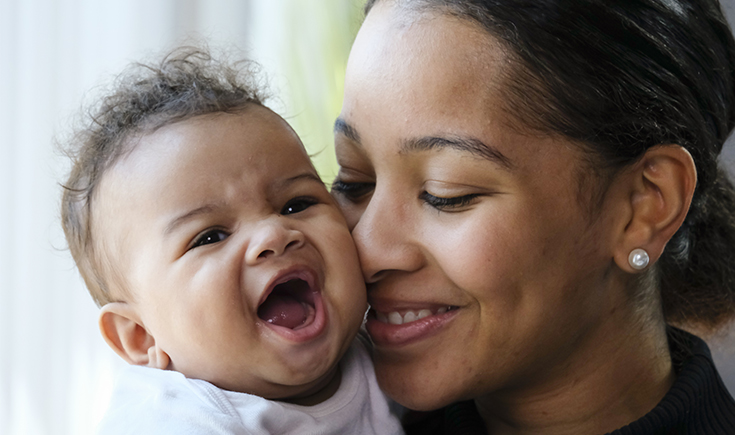

Your baby is born with their own unique temperament that cannot be changed. Temperament refers to the way a baby respond to the world, and experiences and recovers from stress. You might already describe your baby as ‘easy going’ or ‘sensitive’.
Babies of all temperaments require their needs to be met day and night, and you can nurture their development by adapting your parenting to your child’s temperament. With certain temperaments this can be especially challenging and intense, particularly if your personality is different to your baby’s.
Before we look at how we can adapt our parenting style to be intune with our baby’s temperament, find out which temperament your baby has first if you’re unsure.
Which temperament does your baby have?
Babies are born with one of the following temperaments, and listed are the common characteristics of each:
Easy
- 40% of babies are born with this temperament
- Positive mood
- Positive approach to new situations
- Adaptability
- Reaction to stimuli is non-intense
High needs (previously called difficult)
- 10% of babies are born with this temperament
- Negative mood
- Negative approach to new situations
- Slow adaptability
- Reaction to stimuli is intense
- Tendency to cry a lot (and loudly)
- Difficult to soothe
- Cranky
- Often experience sleep difficulties
- Also known as colicky, spirited, or stubborn
Slow to warm up
- 5-15% of babies are born with this temperament
- Low activity level
- Low intensity of reaction
- Tendency to withdraw from new situations
- Somewhat negative in mood
- Can adapt to new situations if allowed to at their own pace and not pressured
Combination
- 35% of babies are a combination of the first three temperaments
Baby temperament and parenting style
Now that you’ve considered which temperament your baby has, let’s look at parenting styles that can help to nurture them. There is no right or wrong way to parent babies with certain personalities, but it’s important to be aware of because the differences in temperament influences the way a baby handles their emotions, regulates their behaviours, and feels around new people and situations.
If you have an easy baby, congratulations! For a start, you might be getting more sleep than other parents, and your baby can probably cope with changes to routines easily. However, your baby might be less assertive so as they grow, you might need to help them learn to stand up for themselves.
If you have a high needs baby, you might need to help your baby learn how to respond more calmly. High needs babies can be very physically active and need lots of time outdoors. Because they can also have difficulty maintaining their attention, they may need lots of encouragement to keep going at difficult tasks.
Caring for a high needs baby can be exhausting and worrisome. You might have the urge to ignore their communication, or show them ‘tough love’, (or shout back at them when they shout at you!), but you cannot change their personality, plus research has found that responsive parenting results in the best outcomes for these babies (Betts J, Gullone E, Allen JS).
If your baby is slow to warm up, they may be less physically active so could possibly need encouragement to get outdoors more. If they’re not very sociable, they might be good at independent play, but will probably need extra support to make them feel comfortable with new people or situations. They might not enjoy changes to their routine or cope well with changes, so plan around their regular routine.
Is your temperament similar or different to your baby’s?
If your baby’s temperament is similar to yours, you might find it easier to understand and respond to your baby’s needs. For instance, if you like predictability, you might find it easier to care for a baby who likes their routine and needs consistent sleep. On the other hand, if you’re more go-with-the-flow, it might be difficult for you to parent a baby who likes routine.
It’s up to us to help our children to adapt, to develop coping strategies, to support them in a way that is appropriate for their temperament, and remember that we cannot change them. It’s who they are, and that’s great! The other thing to remember if you know someone with an easy-going bub who loves their sleep, while yours screams down the house every night…it’s not anyone’s ‘fault’ or down to parenting or ‘indulging’. Every baby is unique and special.
Betts J, Gullone E, Allen JS. An examination of emotion regulation, temperament, and parenting style as potential predictors of adolescent depression risk status: A correlational study. British Journal of Developmental Psychology. June 2009:473-485. doi:10.1348/026151008×314900
Raising Children, Temperament: What it is and Why it Matters, www.raisingchildren.net.au, last reviewed 2020.























